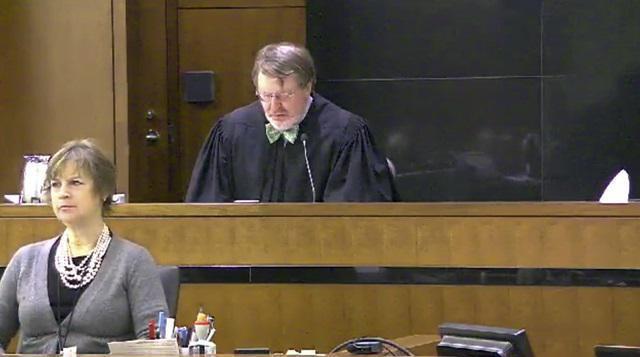Litigation is a complex and serious process. When the case is ready for trial, the judge sets the date and time of the hearing. Further, the parties to the trial and its other participants are notified when and at what address the case will be considered. To do this, they are sent summons, called judicial notices. There are certain rules for the delivery of summons. In particular, this is done under signature, by registered letter with notification. The person who received the summons is obliged to appear at the hearing, with the exception of cases where there are good reasons for not appearing in court.

Why is it important to ensure the attendance of all participants in the trial?
In order for the trial in any case - criminal, civil or administrative - to be as complete as possible, the judge must interview all persons who can provide important information on the merits of the case. The plaintiff and defendant, the suspect and the victim, as well as witnesses must appear before the court and answer in detail the questions of the judge. The more diverse data on the case, the more objective the decision will be. And since it must be fair, it is imperative that all persons to whom the judicial notices are sent are present in court.
Failure to appear in court without a good reason - what are the consequences?
The obligation of the person who received the subpoena to appear on the appointed day and time at the hearing is established by law. If a person duly summoned to court ignores this obligation without good reason, this is regarded as contempt of court and entails a certain liability.

The degree of responsibility and sanction depends on the quality of whom the person is summoned to court. So, if we are talking about a failure to appear at a hearing in a civil or administrative case of a participant in the process, the fine is from 5 thousand rubles (for an individual) to 100 thousand rubles (such a significant fine may be imposed on state authorities). When a witness is ignored without a valid reason, the fine may be up to 2,500 rubles.
There is also the concept of forcing to a court session a participant in the process who is not systematically attending meetings. This is commonly used in criminal cases.
Which of the reasons to be absent from the court session are considered valid?
Sometimes people summoned to a court session cannot attend it for good reason. Their list is not in the legislative acts, but in practice it has long been formed. What are some good reasons for not appearing in court?
- Sufficiently serious illness of a participant in a lawsuit. A disease is recognized as serious, which does not make it possible to personally appear in court. This also includes finding the person called up for treatment in a hospital facility.
- Too late receipt of the subpoena, for example, directly on the day of the meeting, because of which the summoned person could not appear in court.
- Being on a business trip or leaving for any good reason is a common good reason for the failure to appear in court of the defendant or another participant in the process.
- Inability to attend the meeting due to difficult personal circumstances (illness or death of relatives).
- Force Majeure. Force majeure circumstances - all sorts of disasters, accidents, accidents.For example, a temporary lack of access to transport from the village or a pipe break in the house.
As a rule, good reasons for not appearing in court are limited to the above. But in each case, the court decides this issue on an individual basis.

Reasons for non-appearance that are not recognized as valid
It all depends on the court's assessment of the circumstances of the non-appearance of the called person. Practice shows that, for example, departure on a tour package, even if purchased in advance, the court does not recognize as a valid reason. A person who lives within walking distance from the courthouse will not be able to invoke the inability to attend the hearing due to transportation problems.
In addition, documentary evidence of the reasons referred to by the person is required. A certificate from the hospital with the doctor’s signature and seal, a travel letter, a certificate from the Housing Management Authority about the accident of utility systems in the house - such documents must be provided to confirm the good reasons for not appearing in court.

Actions exempting from the consequences of failure to appear in court
There is a legitimate opportunity to skip the hearing and avoid liability for failure to appear. It is enough to apply to the court in advance with a motion to postpone the scheduled meeting or to consider the case in your absence. In this case, there is no need for special, justifiable reasons for not appearing in court; it is enough to refer to the impossibility of attending the meeting “for family reasons”. Usually the court is loyal to such statements and postpones the trial without negative consequences for the applicant.